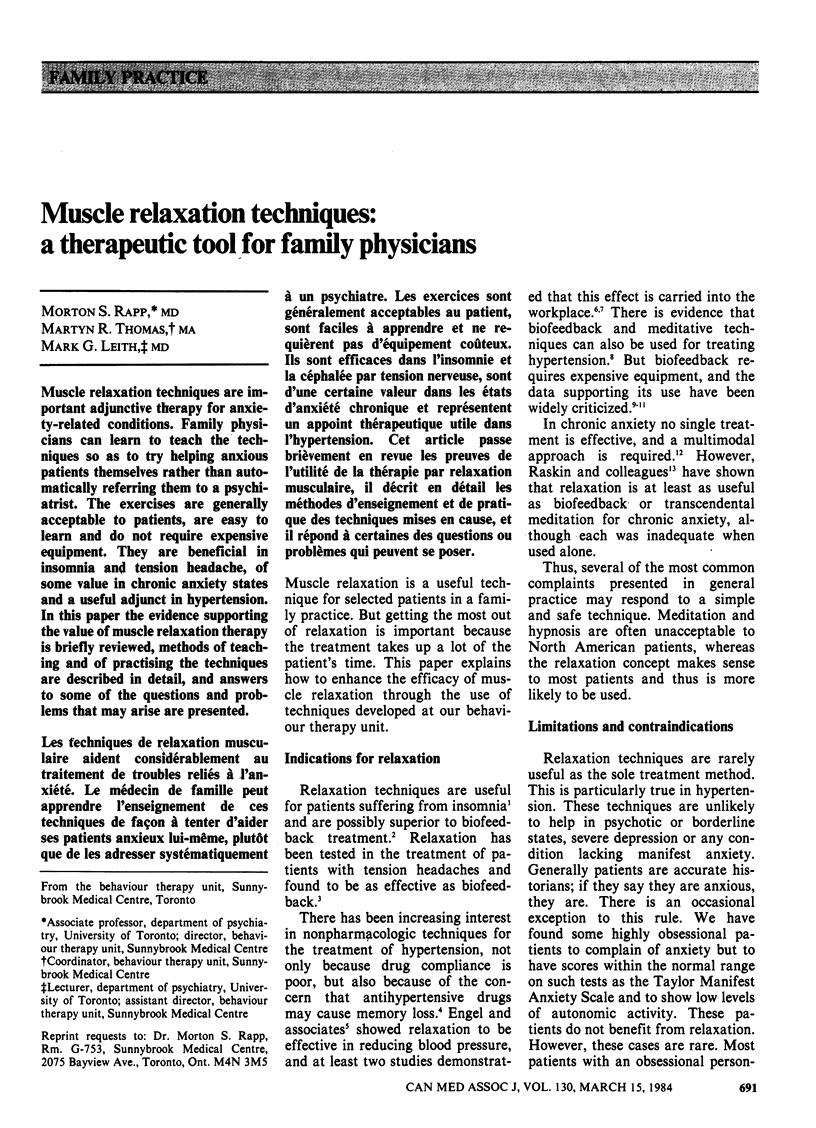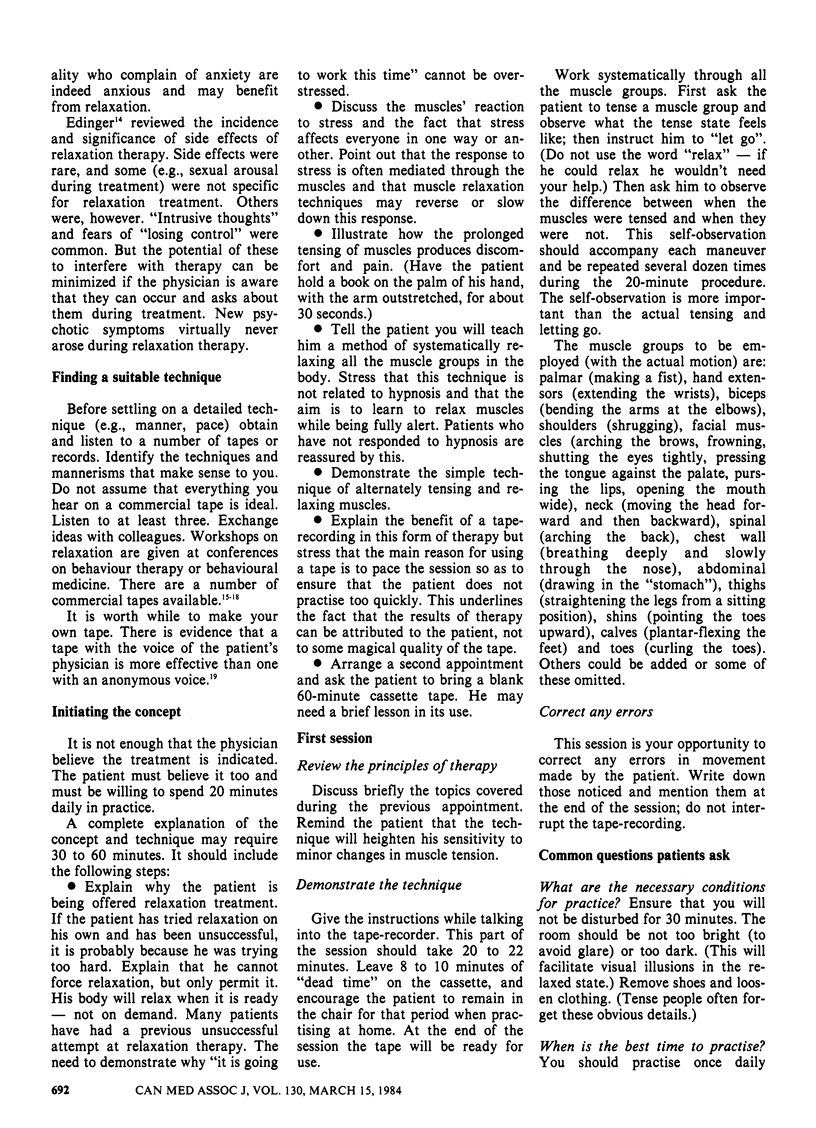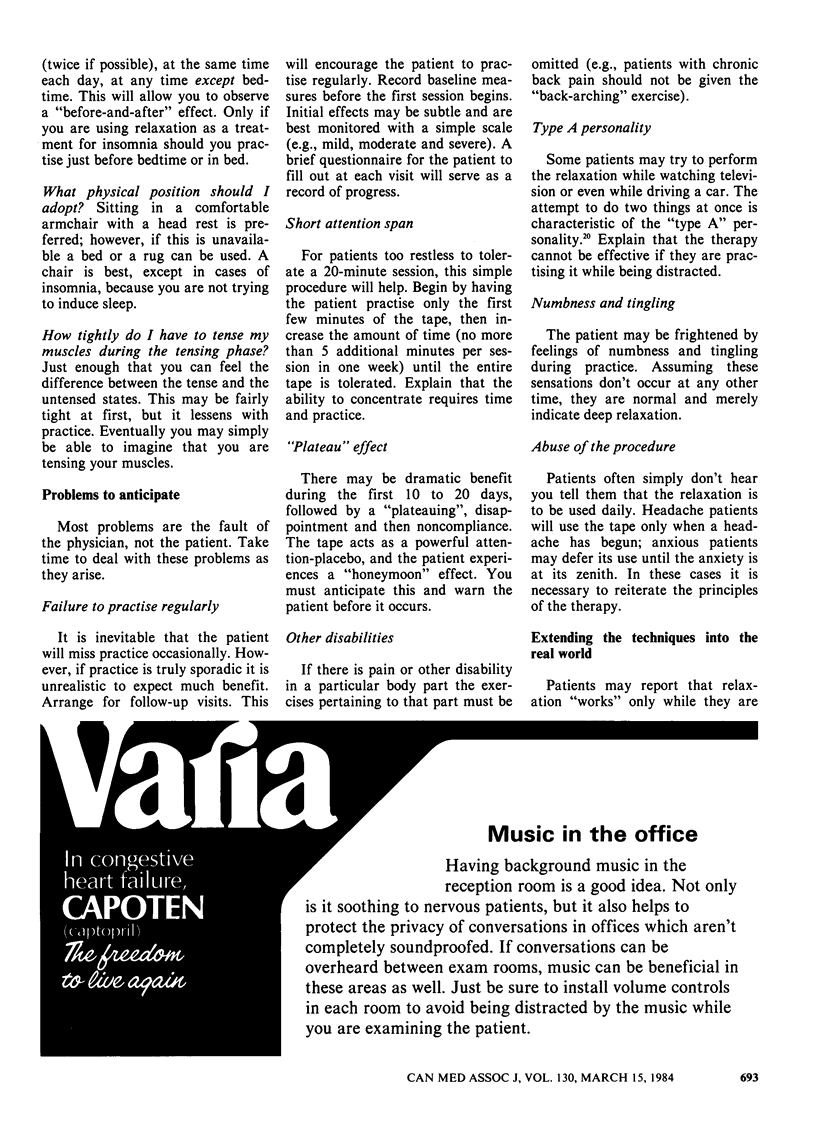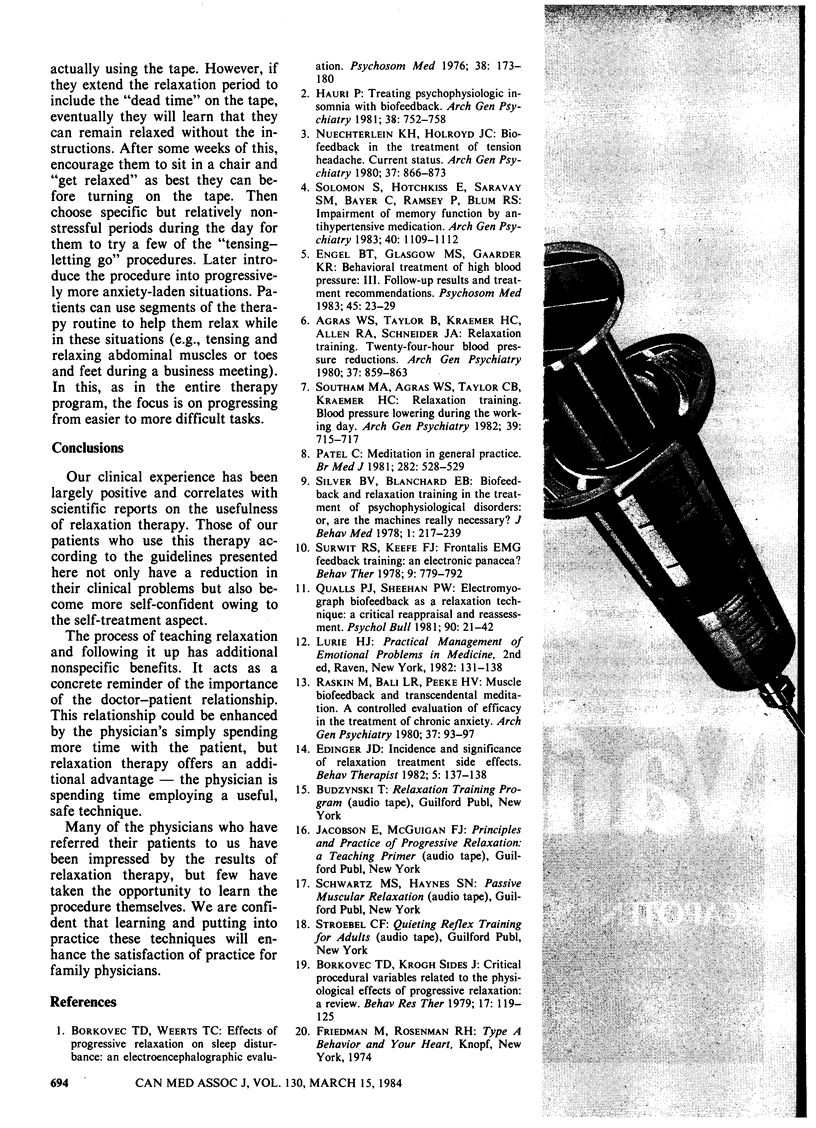Abstract
Muscle relaxation techniques are important adjunctive therapy for anxiety-related conditions. Family physicians can learn to teach the techniques so as to try helping anxious patients themselves rather than automatically referring them to a psychiatrist. The exercises are generally acceptable to patients, are easy to learn and do not require expensive equipment. They are beneficial in insomnia and tension headache, of some value in chronic anxiety states and a useful adjunct in hypertension. In this paper the evidence supporting the value of muscle relaxation therapy is briefly reviewed, methods of teaching and of practising the techniques are described in detail, and answers to some of the questions and problems that may arise are presented.
Full text
PDF



Selected References
These references are in PubMed. This may not be the complete list of references from this article.
- Agras W. S., Taylor B., Kraemer H. C., Allen R. A., Schneider J. A. Relaxation training, twenty-four-hour blood pressure reductions. Arch Gen Psychiatry. 1980 Aug;37(8):859–863. doi: 10.1001/archpsyc.1980.01780210017001. [DOI] [PubMed] [Google Scholar]
- Borkovec T. D., Krogh Sides J. Critical procedural variables related to the physiological effects of progressive relaxation: a review. Behav Res Ther. 1979;17(2):119–125. doi: 10.1016/0005-7967(79)90020-2. [DOI] [PubMed] [Google Scholar]
- Borkovec T. D., Weerts T. C. Effects of progressive relaxation on sleep disturbance: an electroencephalographic evaluation. Psychosom Med. 1976 May-Jun;38(3):173–180. doi: 10.1097/00006842-197605000-00003. [DOI] [PubMed] [Google Scholar]
- Engel B. T., Glasgow M. S., Gaarder K. R. Behavioral treatment of high blood pressure: III. Follow-up results and treatment recommendations. Psychosom Med. 1983 Mar;45(1):23–29. doi: 10.1097/00006842-198303000-00004. [DOI] [PubMed] [Google Scholar]
- Hauri P. Treating psychophysiologic insomnia with biofeedback. Arch Gen Psychiatry. 1981 Jul;38(7):752–758. doi: 10.1001/archpsyc.1981.01780320032002. [DOI] [PubMed] [Google Scholar]
- Nuechterlein K. H., Holroyd J. C. Biofeedback in the treatment of tension headache. Current status. Arch Gen Psychiatry. 1980 Aug;37(8):866–873. doi: 10.1001/archpsyc.1980.01780210024002. [DOI] [PubMed] [Google Scholar]
- Patel C. Meditation in general practice. Br Med J (Clin Res Ed) 1981 Feb 14;282(6263):528–529. doi: 10.1136/bmj.282.6263.528. [DOI] [PMC free article] [PubMed] [Google Scholar]
- Qualls P. J., Sheehan P. W. Electromyograph biofeedback as a relaxation technique: a critical appraisal and reassessment. Psychol Bull. 1981 Jul;90(1):21–42. [PubMed] [Google Scholar]
- Raskin M., Bali L. R., Peeke H. V. Muscle biofeedback and transcendental meditation. A controlled evaluation of efficacy in the treatment of chronic anxiety. Arch Gen Psychiatry. 1980 Jan;37(1):93–97. doi: 10.1001/archpsyc.1980.01780140095011. [DOI] [PubMed] [Google Scholar]
- Silver B. V., Blanchard E. B. Biofeedback and relaxation training in the treatment of psychophysiological disorders: or are the machines really necessary? J Behav Med. 1978 Jun;1(2):217–239. doi: 10.1007/BF00846641. [DOI] [PubMed] [Google Scholar]
- Solomon S., Hotchkiss E., Saravay S. M., Bayer C., Ramsey P., Blum R. S. Impairment of memory function by antihypertensive medication. Arch Gen Psychiatry. 1983 Oct;40(10):1109–1112. doi: 10.1001/archpsyc.1983.01790090071011. [DOI] [PubMed] [Google Scholar]
- Southam M. A., Agras W. S., Taylor C. B., Kraemer H. C. Relaxation training. Blood pressure lowering during the working day. Arch Gen Psychiatry. 1982 Jun;39(6):715–717. doi: 10.1001/archpsyc.1982.04290060061012. [DOI] [PubMed] [Google Scholar]


